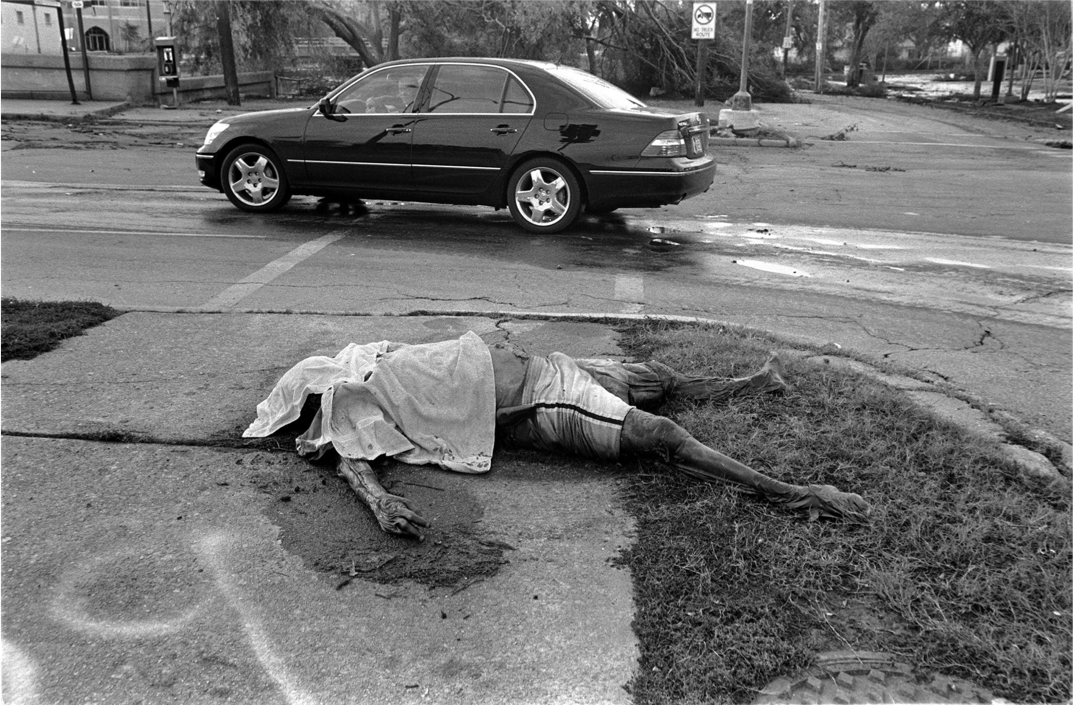Living Katrina: 10 Years Later
I Hate Her. I Love Her.
By Clarence Williams
Much has happened in this decade. I still consider myself a photojournalist, but my role and identity in this beloved and evolving profession have changed over these past 10 years. For nine of them I was a professor at the University of Southern Mississippi, where I was the head of Photojournalism at the College of Arts and Letters. Now, I'm Director of Communications for New Orleans City Councilman-At-Large, Jason Williams.
Today, August 23rd, I sat in front of my boss in a small ratty studio in the French Quarter as he did a live segment with the Melissa Harris-Perry show on MSNBC. As he and the other guests discussed the topics at hand, news images of Katrina danced across the screen. I thought. I felt. I hurt. Not for the first time, but I was reminded that I didn't cover the story. Shit, I was a part of the story. That hurricane happened to me and to my family. I spent days on a roof and in a sweltering attic as survival mode superseded all. I had a beautiful array of cameras to photograph my cousin's wedding, which was scheduled for August 29th, but no fucking film.

Clarence Williams: "As the flood waters receded, the madness continued. Many black bodies littered the city. Some were stuffed in plastic bags and discarded as trash. This lonely soul was sprawled on Carrollton Ave as a luxury car passes by."
Hurricane Katrina is in me. I hate her. I love her.
The local and national coverage of the story broke my heart and weakened my bond with this country that birthed me. As a result of journalism I learned that I'm not a real American. Black President or not I struggle to feel like one. I'm just here. Why? Because I and so many others were called "refugees" over and over again. Words are powerful. The language of Hurricane Katrina substantiated my suspicions that I am not a truly vested American. I'm a fucking refugee! Ain't that some shit.
Despite that harsh, rude awakening, I told my story. Hopefully, the book will be published one day. I stand behind the work. I'm proud of it. As far as covering a disaster like this, I think it’s crucial that we as journalists are honest, fair and loving. And we must do our research. More than natural disaster, this story was and is about poverty in America. Katrina also reminded me of the importance of just being prepared – knowing what you’re walking into. As the waters receded it was about cash in small denominations. There were ATMs. There just wasn't any electricity.
I try not to reflect on Hurricane Katrina. I do talk about it. I’ve shared her with every student that’s crossed my path. My book, after a handful of rejections, lives in a drawer. Life moves on.
- Previous Section
June Cross: Chronicling the Destruction of the American Dream - Next Section
Joy Osofsky: A New Normal
































































































